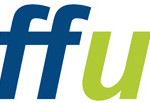 The workshop is going to take place at the Environmental Policy Research Centre (FFU) at the Free University of Berlin on 14 February. The title of my conference paper, presentation and working title of my chapter is: “Germany: Energiewende going local?”.
The workshop is going to take place at the Environmental Policy Research Centre (FFU) at the Free University of Berlin on 14 February. The title of my conference paper, presentation and working title of my chapter is: “Germany: Energiewende going local?”.
Working title of the whole book is: “Energy policy in a carbon-constrained world”.
From the book editors proposal:
In all of the countries the book looks at, we see movements towards the promotion of low-carbon energy systems. Yet, without support from and implementation on the local level these policies or visions of energy policy in a carbon-constrained world cannot be translated into reality. A range of questions, in all phases of energy policy making – from agenda-setting to implementation – are indeed linked to the local level and its contribution to policy change in the field of energy. The book therefore aims to answer the question of whether the local level is a driver or an obstacle to energy transition/low-carbon energy policies and their implementation in the XY countries selected.
 The workshop is going to take place at the Environmental Policy Research Centre (FFU) at the Free University of Berlin on 9 Mai. The title of my conference paper, presentation and working title of my chapter is: “Germany: Energiewende going local?”.
The workshop is going to take place at the Environmental Policy Research Centre (FFU) at the Free University of Berlin on 9 Mai. The title of my conference paper, presentation and working title of my chapter is: “Germany: Energiewende going local?”.